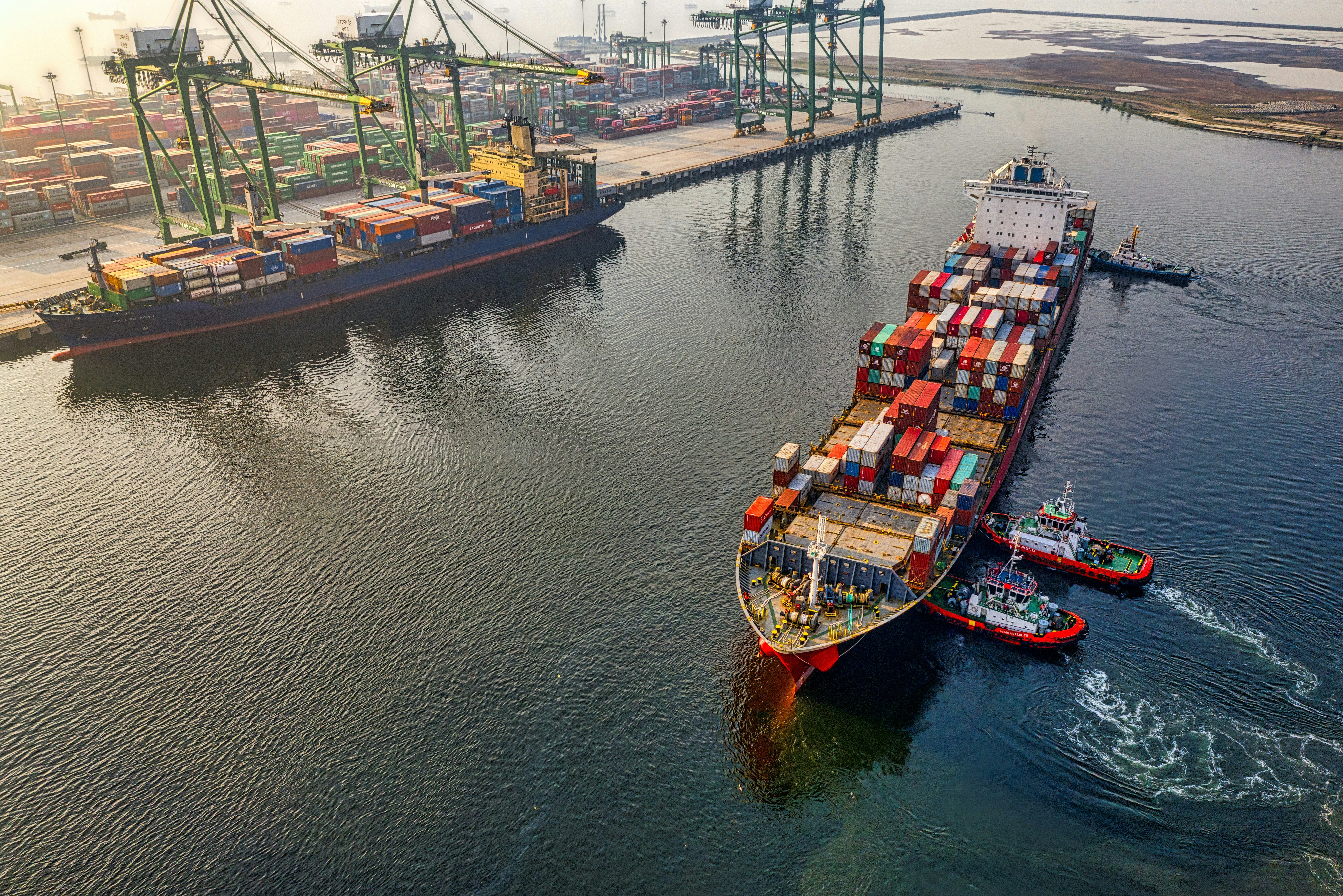
UNCTAD is pleased to announce six short courses in 2020 (due to the global pandemic, three were implemented)

The UNCTAD secretariat is pleased to announce that the next regional course on key issues on the international economic agenda, which is designed for economies in Asia and the Pacific, will be hosted by the Singapore Cooperation Programme, from 14 November to 2 December 2011.
The course will focus on the links between trade, investment, finance and development, including in the context of international trade negotiations. Its aims are as follows:
(a) Enhance understanding of the relationship between these areas and their links to country development strategies; (b) Provide participants with the knowledge and skills necessary for designing and implementing trade and development policies, as well as for trade negotiations, corresponding to the needs and interests of their countries.
The course syllabus will draw on the perspective of UNCTAD, its analytical work and lessons learned from its technical cooperation activities and will be enriched by the competence and expertise of representatives of the Economic and Social Commission for Asia and the Pacific. Experts from Singapore will also share their national experience in promoting and managing trade, investment, finance and development.
The course is aimed primarily at mid-level government officials in ministries and institutions who are involved in the formulation and implementation of national trade and development policies, and who deal with issues relating to trade, investment and finance, and development. As appropriate, and depending on the availability of space, other applicants, such as university academics, may be considered.

The UNCTAD secretariat is pleased to announce that the next regional course on key issues on the international economic agenda, which is designed for economies in Asia and the Pacific, will be hosted by the Singapore Cooperation Programme, from 11 to 29 November 2013.
The course will focus on the links between trade, investment, finance and development, including in the context of international trade negotiations. Its aims are as follows:
(a) Enhance understanding of the relationship between these areas and their links to country development strategies; (b) Provide participants with the knowledge and skills necessary for designing and implementing trade and development policies, as well as for trade negotiations, corresponding to the needs and interests of their countries.
The course syllabus will draw on the perspective of UNCTAD, its analytical work and lessons learned from its technical cooperation activities and will be enriched by the competence and expertise of representatives of the Economic and Social Commission for Asia and the Pacific. Experts from Singapore will also share their national experience in promoting and managing trade, investment, finance and development.
The course is aimed primarily at mid-level government officials in ministries and institutions who are involved in the formulation and implementation of national trade and development policies, and who deal with issues relating to trade, investment and finance, and development. As appropriate, and depending on the availability of space, other applicants, such as university academics, may be considered.

The UNCTAD secretariat is pleased to announce that the next regional course on key issues on the international economic agenda, which is designed for economies in Asia and the Pacific, will be hosted by the Singapore Cooperation Programme, from 09 to 27 November 2015.
The course will focus on the links between trade, investment, finance and development, including in the context of international trade negotiations. Its aims are as follows:
(a) Enhance understanding of the relationship between these areas and their links to country development strategies; (b) Provide participants with the knowledge and skills necessary for designing and implementing trade and development policies, as well as for trade negotiations, corresponding to the needs and interests of their countries.
The course syllabus will draw on the perspective of UNCTAD, its analytical work and lessons learned from its technical cooperation activities and will be enriched by the competence and expertise of representatives of the Economic and Social Commission for Asia and the Pacific. Experts from Singapore will also share their national experience in promoting and managing trade, investment, finance and development.
The course is aimed primarily at mid-level government officials in ministries and institutions who are involved in the formulation and implementation of national trade and development policies, and who deal with issues relating to trade, investment and finance, and development. As appropriate, and depending on the availability of space, other applicants, such as university academics, may be considered.

The UNCTAD secretariat is pleased to announce that the next regional course on key issues on the international economic agenda, which is designed for economies in Asia and the Pacific, will be hosted by the Singapore Cooperation Programme, from 13 November to 1 December 2017.
The course will focus on the links between trade, investment, finance and development, including in the context of international trade negotiations. Its aims are as follows:
(a) Enhance understanding of the relationship between these areas and their links to country development strategies; (b) Provide participants with the knowledge and skills necessary for designing and implementing trade and development policies, as well as for trade negotiations, corresponding to the needs and interests of their countries.
The course syllabus will draw on the perspective of UNCTAD, its analytical work and lessons learned from its technical cooperation activities and will be enriched by the competence and expertise of representatives of the Economic and Social Commission for Asia and the Pacific. Experts from Singapore will also share their national experience in promoting and managing trade, investment, finance and development.
The course is aimed primarily at mid-level government officials in ministries and institutions who are involved in the formulation and implementation of national trade and development policies, and who deal with issues relating to trade, investment and finance, and development. As appropriate, and depending on the availability of space, other applicants, such as university academics, may be considered.

The UNCTAD secretariat is pleased to announce that the next regional course on key issues on the international economic agenda, which is designed for economies in Asia and the Pacific, will be hosted by the Singapore Cooperation Programme, from 18 to 29 November 2019.
The course will focus on the links between trade, investment, finance and development, including in the context of international trade negotiations. Its aims are as follows:
(a) Enhance understanding of the relationship between these areas and their links to country development strategies; (b) Provide participants with the knowledge and skills necessary for designing and implementing trade and development policies, as well as for trade negotiations, corresponding to the needs and interests of their countries.
The course syllabus will draw on the perspective of UNCTAD, its analytical work and lessons learned from its technical cooperation activities and will be enriched by the competence and expertise of representatives of the Economic and Social Commission for Asia and the Pacific. Experts from Singapore will also share their national experience in promoting and managing trade, investment, finance and development.
The course is aimed primarily at mid-level government officials in ministries and institutions who are involved in the formulation and implementation of national trade and development policies, and who deal with issues relating to trade, investment and finance, and development. As appropriate, and depending on the availability of space, other applicants, such as university academics, may be considered.

Effective policy action requires a shared understanding among a wide number of stakeholders of what is STI policy and how innovation emerges and contributes to economic growth and sustainable development. The objective of this course is to build capacity among policymakers and stakeholders to better understand their science, technology and innovation (STI) ecosystems and thus design and implement successful STI policies.
The fall/winter session will commence on 1 October 2025. To sign up for this session please proceed to our sign-up page.

As part of the UN Development Account project “Sustainable Smart Ports for African Countries, including Small Island Developing States”, UNCTAD is organizing an online capacity-building course on sustainable smart ports (SSP) for Africa.
This course builds on previous regional workshops delivered under the project, including how to design efficient energy management systems and how to advance the electrification of port equipment. It seeks to equip key stakeholders in Africa’s port sector—including port authorities, terminal operators, government agencies, and private sector actors—with the technical expertise and hands-on capabilities needed to support sustainable port development.
The training will guide participants through the core building blocks of SSP development: It offers targeted guidance on planning and implementing SSP strategies, beginning with an introduction to key concepts, reform principles, and the UNCTAD methodology for assessing a port’s SSP status. Participants will also explore energy efficiency measures through ISO 50001-based energy management systems and develop practical approaches for the electrification of port equipment, supporting the transition toward low-emission, energy-efficient operations.
The course will be delivered through four online sessions, each lasting one hour. Sessions will blend theoretical input with practical case studies, ensuring that participants gain both conceptual understanding and actionable skills. The programme will also include interactive exercises, enabling participants to collaboratively design and refine roadmaps for implementing SSPs in their respective contexts.
The objective of this course is to strengthen the capacities of ports in Africa in building sustainable smart ports (SSP) that promote sustainable energy and technology-driven solutions.
MODULE 1
Introduction to SSP
SSP definition, concepts and best practices
Key principles and policy areas to advance SSP reforms
UNCTAD methodology to assess a port's SSP status
MODULE 2
Energy efficiency and ISO 50001 for ports
Energy management system based on ISO 50001
Port application of the standard
MODULE 3
Port equipment electrification
Guidelines on the electrification of port equipment
Action plan for electrifying port equipment

UNCTAD's Regional Course on Key issues on the International Economic Agenda for UNCTAD member States in the Asia and Pacific region will be held at the United Nations Economic and Social Commission for Asia and the Pacific in Bangkok, Thailand, 18 - 29 November 2002.
The course is aimed at government officers (director or deputy-director level) in ministries of trade, industry or commerce, who are involved in the formulation and implementation of national trade and development policies. Academics from research institutions and universities active in international economic issues are also encouraged to apply.
The course draws on UNCTAD's perspectives and expertise, and aims to enhance an understanding of UNCTAD's analytical work, as well as the lessons drawn from UNCTAD's technical cooperation activities. The content and the approaches of the course will also draw on the competence and expertise of UNESCAP and other regional experts.